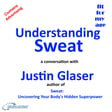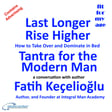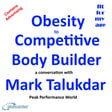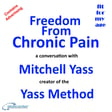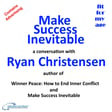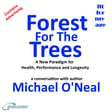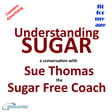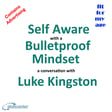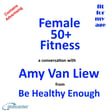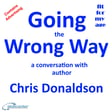
Discovering Extreme Endurance Sport - a conversation with Jack Harrison.
The Star described Jack Harrison as Britain’s the fittest madman in Britain, which might be a but harsh. But across all forms of media Jack is renown for his fitness and his sense of adventure.
I topped the three peaks in Yorkshire a few years ago. Jack did the same sort of thing, but his three peaks were the highest in France, Austria and Italy, a task he completed in just one week.
On dry land, over snow, and either in or on the waterJack is working his way through the 15 sports that have endurance events, for the fun of it!
Now he had created his research into a book, The Toughest Endurance Races, that is sure to inspire many others to take up extreme sports challenges.
In this episode of the Abecederpodcast Fit For My Age you will hear Jack explain to host Michael Millward how a suggestion from his father led to a life-long passion for fitness and extreme endurance sport.
Proactive Positive Ageing.
Before you embark on your own extreme sports adventure it is always a good idea to know the risks early so that you can take appropriate actions to maintain good health, that is why we recommend The Annual Health Test from York Test.
York Test provides an Annual Health Test. An experienced phlebotomist will complete a full blood draw at your home or workplace. Hospital standard tests covering 39 different health markers are carried out in a UKAS-accredited and CQC-compliant laboratory.
A Personal Wellness Hub gives access your easy-to-understand results and guidance to help you make effective lifestyle changes anytime via your secure, personal Wellness Hub account.
Visit York Test and use this discount code AGE25.
Fit For My Age is made on Zencastr, because Zencastr is the all-in-one podcasting platform, that really does make creating content so easy.
If you would like to try podcasting using Zencastr visit zencastr.com/pricing and use our offer code ABECEDER.
Travel
Get to your extreme sports events at the minimum price by accessing trade prices on travel as a member of the Ultimate Travel Club. Use our offer code ABEC79 to receive a discount on your membership fee.
Find out more about both Michael Millward and Jack Harrison at Abeceder.co.uk.
If you are a podcaster looking for interesting guests or if like Jack, you have something interesting to say Matchmaker.fm is where matches of great hosts and great guests are made. Use our offer code MILW10 for a discount on membership.
Being a Guest
If you would like to be a guest on Fit For My Age, please contact using the link at Abeceder.co.uk.
We recommend the podcasting guest training programmes available from Work Place Learning Centre.
We appreciate every like, download, and subscriber.
Thank you for listening.
